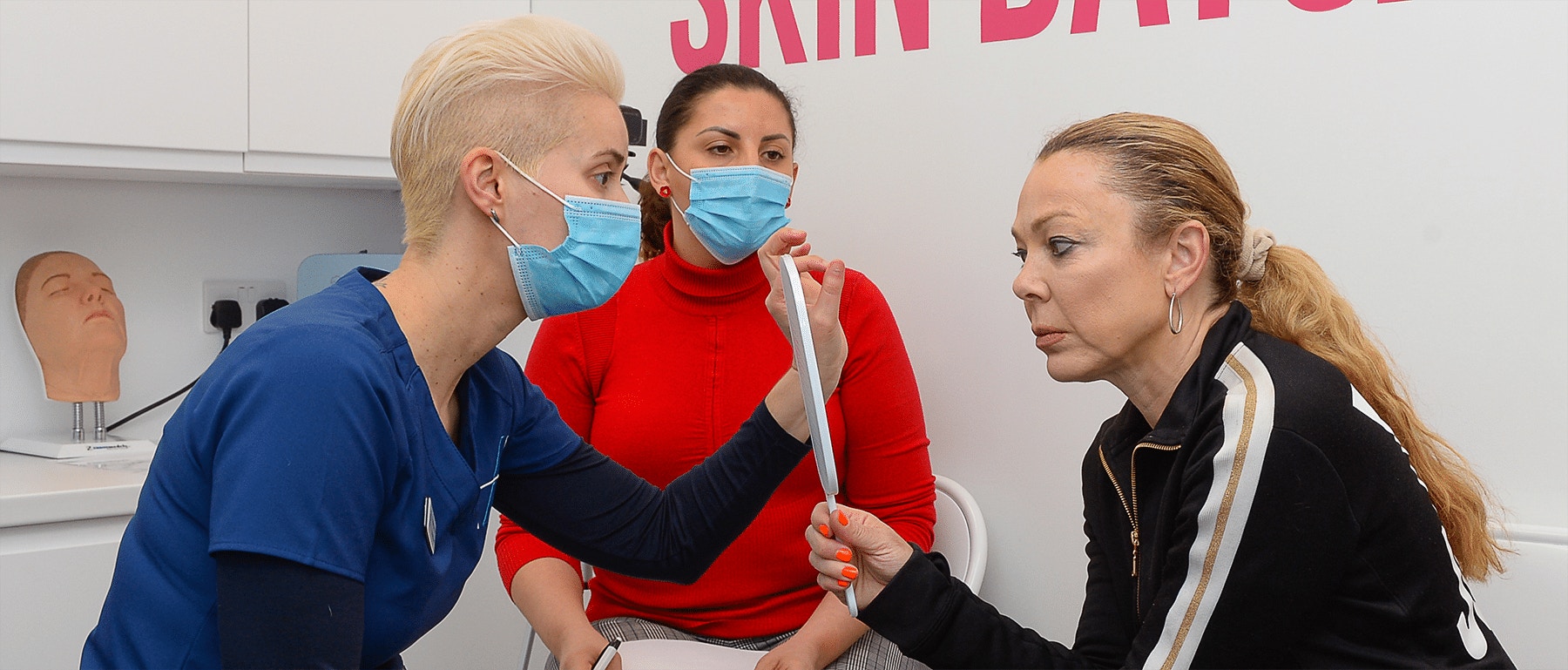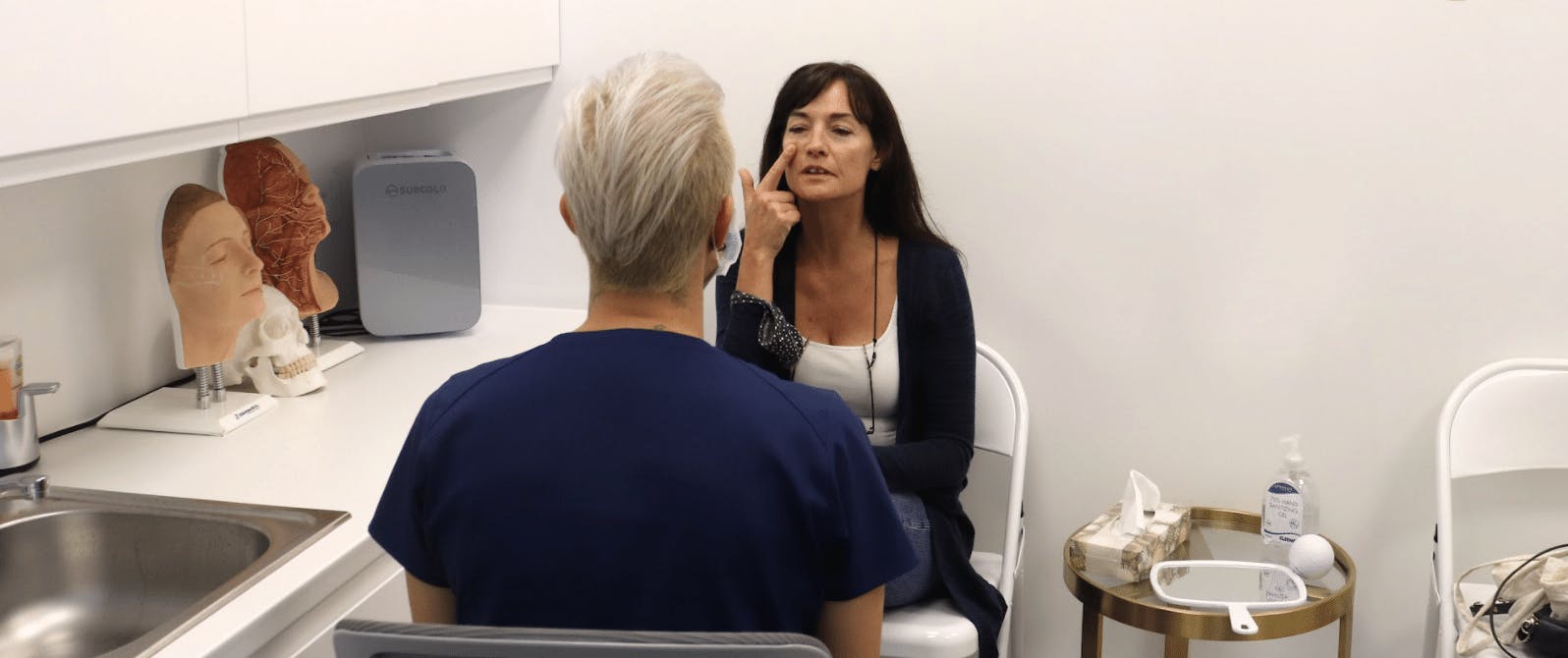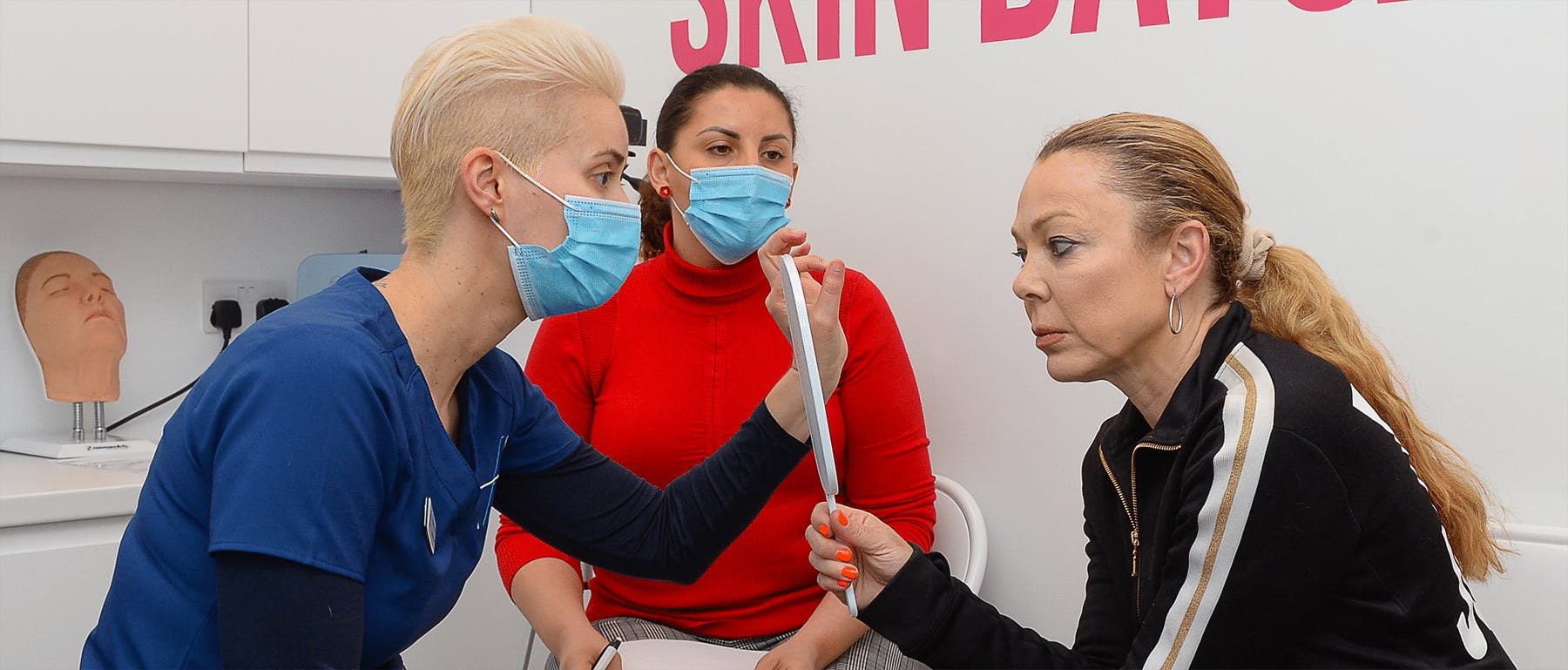How to Refuse a Patient: Advice for new Aesthetics Practitioners

Knowing how to refuse a patient is a key skill all new aesthetics practitioners should develop.
Denying treatment is something you’ll all need to do at some point. It isn’t something you should feel badly about. When the patient is in front of you, it can certainly be awkward though!
However, there are a number of options here, and steps you can employ to ensure this interaction goes as well as possible.
To find out the best way to do this, we spoke to aesthetics expert and Harley Academy founder, Dr Tristan Mehta. This is his advice on how to refuse a patient treatment...
REMEMBER YOU'RE UNDER NO OBLIGATION TO TREAT ANYONE
“This is probably the most uncomfortable you’ll be in your aesthetic medicine career,” says Dr Tristan.
“Imagine if you’re consulting with someone and you just know there are red flags. Or your gut feeling is that this patient isn’t going to benefit from treatments. Often it’s because there are psychosocial reasons why treating may not be the best care for that patient.”
He reminds us, “The first thing to say is, you’re under no obligation to treat anyone in aesthetic medicine. This isn’t your job. You’re here to provide a service to the right patients.”
Remember that refusing treatment can be an effective marketing tool as it helps to preserve the integrity of your practice.
EXPLORING AESTHETICS PATIENTS' MENTAL HEALTH
“Let’s say someone isn’t suitable because you’re worried there may be some serious signs of dependency on injectables for someone’s mental health,” says Dr Tristan.
“For example, if someone feels like if they don’t have this treatment, they’re going to be sad, or anxious. If they’re going to be checking themselves in the mirror all the time. This is often what we see,” he notes. “Then, we have to ultimately address that psychological concern.”
“Diving into the history of their mental health, is one of the things that we should be able to do as aesthetics practitioners. But it is hard as you’re addressing some very intimate, personal issues.”
“Aesthetic medicine runs at this kind of superficial level, but underneath it all is this huge psychosocial component.”

HOW TO TALK TO PATIENTS YOU'RE DENYING TREATMENT
“If something is telling you not to treat, or you just don’t want to treat because your instinct is that it’s not appropriate, then you have to manage that in the room. You have to very sensitively have that conversation with them,” advises Dr Tristan.
“As soon as you clunk into that gear, the atmosphere will change,” he cautions. But you must not let this put you off.
“With every consultation you have, you want to get a feel for those elements in our consultations because that’s really what we’re addressing. The emotional components,” explains Dr Tristan.
“If you’re familiar with those exploratory questions in your history taking, it won’t be so hard when you really have to refuse a patient”, he says.
“So how do you refuse a patient? Sensitively and, as a good clinician, I think you have to be familiar with and able to talk about these things.”
AN EXAMPLE OF WHAT TO SAY WHEN REFUSING TO TREAT A PATIENT
Dr Tristan gives the following example of how you can start this conversation with your patient…
“I really think that treating you today isn’t the right thing to do. The way you’ve spoken to me, the things that you’re expressing to me, make me feel uncomfortable about progressing with treatment.
“I know this may be disappointing to hear, and it’s an important plan for you, but I need a bit more time. Also, with your permission I would like to work with your GP. I’d like to talk to them about potentially referring you to a psychotherapist so we can explore some of these concerns.”

OPTIONS IF YOU'RE NOT COMFORTABLE WITH PROVIDING TREATMENT
Refusing treatment is not always the whole story. There are two other frequently used options you can consider here, alongside denying on the spot treatment.
1. Refer the patient to a colleague
If the issue is due to your own lack of experience – which is an excellent reason to refuse a patient – referring to someone who’s more able to assist them is a great option.
2. Explain that you need more time to consider their case
In cases where you need to consult with colleagues, for example, this is a solid option. This approach also works well in cases where you feel that refusing treatment in person could become problematic.
We hope you find this guidance helpful! If you use it, let us know how you get on. Leave us a message either in the Harley Academy Comma, our exclusive trainee platform, or by commenting on the Harley Academy Instagram account.
All information correct at the time of publication
Download our full prospectus
Browse all our injectables, dermal fillers and cosmetic dermatology courses in one document
By submitting this form, you agree to receive marketing about our products, events, promotions and exclusive content. Consent is not a condition of purchase, and no purchase is necessary. Message frequency varies. View our Privacy Policy and Terms & Conditions
Attend our FREE open evening
If you're not sure which course is right for you, let us help
Join us online or in-person at our free open evening to learn more
Our Partners













STAY INFORMED
Sign up to receive industry news, careers advice, special offers and information on Harley Academy courses and services

